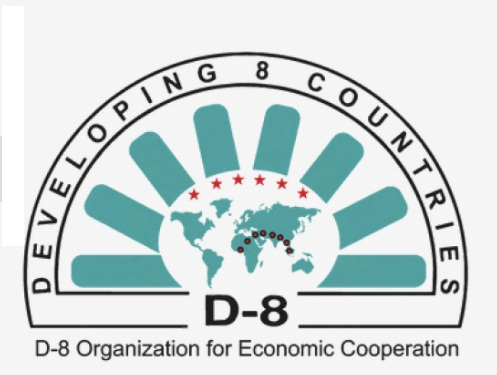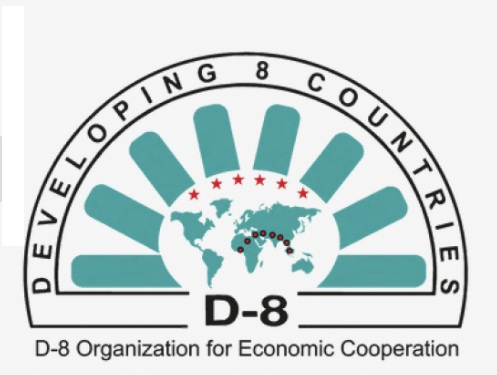
Saudi-Pakistan Defense Pact Reshapes Middle Eastern Geopolitics
In a move that has sent seismic waves across the international community, Saudi Arabia and the Islamic Republic of Pakistan have formally signed a mutual defense pact. The announcement, coming in the immediate aftermath of a devastating Israeli attack on Qatar, signals a dramatic and potentially dangerous realignment of power in a region already on a knife's edge.
This agreement, far more than a simple reaffirmation of longstanding ties, represents a fundamental shift in the strategic calculus of the Middle East and South Asia, with implications for global security, energy markets, and the future of conflict in the region.
From Strategic Partnership to Ironclad Guarantee
Saudi Arabia and Pakistan share a deep, decades-long relationship built on a foundation of economic support, religious solidarity, and security cooperation. Riyadh has long been a financial benefactor to Islamabad, while Pakistan has provided the Kingdom with military trainers and troops for its defense. However, this new pact elevates that relationship to an entirely new level.The core tenet of the agreement, as stated by the Pakistani prime minister’s office, is that "any aggression against either country will be treated as aggression against both." This transforms a friendly understanding into a legally binding, ironclad security guarantee. For Saudi Arabia, a nation rich in wealth and oil but with a relatively small population, this pact effectively places it under the umbrella of Pakistan's formidable military—the world’s sixth-largest—and, most significantly, its nuclear arsenal.
The Qatar Catalyst: A Region on the Brink
The timing of the announcement is impossible to ignore. The pact was finalized during emergency talks in Riyadh between Crown Prince Mohammed bin Salman and Pakistani Prime Minister Shehbaz Sharif, held just days after Israel's unprecedented attack on Qatar.This context is crucial. The strike on Qatar, a nation that also hosts a major U.S. military base, demonstrated a terrifying escalation in the ongoing regional proxy wars. For Saudi Arabia, a longstanding rival of Qatar, the attack was likely seen not just as an strike against a neighbor, but as a harbinger of unchecked aggression that could one day be directed at Riyadh itself. The message from the Saudi leadership is clear: the traditional security architecture, heavily reliant on the United States, is no longer seen as dependable. They are seeking new, more immediate guarantees for their survival.
By aligning directly with a nuclear-armed power, Saudi Arabia is sending a powerful deterrent message to all regional adversaries, primarily Israel and Iran: an attack on the Kingdom will now carry an incalculable and existential risk.
Iran's Calculated Response: Diplomatic Outreach in a Shifting Landscape
This development comes as Iran's security leadership has initiated a regional outreach, seeking to capitalize on the chaos to advance its own vision for a new security architecture. In a highly significant move, Ali Larijani, a senior advisor to Iran’s Supreme Leader and former Parliament Speaker, was dispatched to Saudi Arabia.
Larijani’s mission is multifaceted:
Testing the Waters: Iran is likely probing Saudi Arabia's commitment to its new partnership with Pakistan and gauging its level of anxiety post-Qatar.
Offering an Alternative: Tehran is positioning itself as a necessary partner for regional stability, arguing that a collective security agreement that includes Iran is preferable to a polarized arms race.
Exploiting Divisions: Iran may see an opportunity to drive a wedge between Saudi Arabia and its traditional allies by presenting itself as a more reliable, or at least inevitable, neighbor in a post-American era.
The Larijani mission underscores that while the Saudi-Pakistan pact is a Sunni-centric bloc, Iran is not remaining idle. It is responding with its own diplomatic offensive, recognizing that the regional order is up for grabs.
The Nuclear Question: A Delicate Balance
The most profound element of the pact is Pakistan’s status as a nuclear power. This agreement implicitly, though not explicitly, introduces a nuclear dimension into the heart of Middle Eastern security.
Deterrence or Provocation? From Saudi Arabia's perspective, this is the ultimate deterrent. It hopes the mere existence of this pact will prevent any future aggression. However, from the perspective of Israel and Iran, it represents a massive escalation, potentially forcing them to recalibrate their own military and strategic doctrines.
The "Sunni Shield" Narrative: The pact solidifies a powerful bloc of Sunni Muslim nations, with Pakistan’s bomb acting as a counterweight to Shiite Iran’s nuclear ambitions and Israel’s presumed nuclear capabilities. This risks hardening the sectarian and geopolitical fault lines in the region, moving from a cold war to a much more volatile standoff.
Global Repercussions and Shifting Alliances
The ramifications of this defense pact extend far beyond the Middle East:
A Challenge to U.S. Influence: This is a stark indication of Riyadh’s desire to diversify its security partnerships away from Washington. While not a full break, it shows Saudi Arabia is willing to build an independent security infrastructure, reducing its reliance on the U.S. military umbrella.
A Dilemma for Washington: The United States now faces a complex challenge. Pakistan is a major non-NATO ally, while Saudi Arabia remains a critical energy partner. However, a mutual defense pact that could potentially draw a nuclear-armed Pakistan into a Middle Eastern conflict is a nightmare scenario for U.S. strategists.
- India's Strategic Anxiety: For India, Pakistan’s arch-rival, this is deeply troubling news. It formalizes the military alliance between its two adversaries—Pakistan and Saudi Arabia’s close ally, China. India must now consider the possibility that a future crisis with Pakistan could, in the worst case, involve a much broader coalition or divert Pakistani resources and attention westward.
Iran's Isolation and Response: For Iran, the pact is the consolidation of a hostile, US-backed, and now nuclear-linked alliance on its flanks. The Larijani mission shows its strategy is two-fold: resist this consolidation through diplomacy while likely accelerating its own military and nuclear programs as an ultimate guarantee. Being aware of what Iran represents for Shia Muslims, and recognizing that Pakistan has a large Shia Muslim community, steps are being taken to signal that this pact is not intended to threaten Iran or exclude Shia Muslims. To this end, on September 18, the foreign ministers of Saudi Arabia called his Iranian counterpart, not details of the call was made available. And on September 19, the Saudi Minister of Defense called his Iranian counterpart to inform "Iran of the details of the Saudi-Pakistani mutual defense treaty, and provided a document with information." Iran's DM thanked the Saudi Defense Ministry for its briefing, and offered its good wishes for the success of this alliance and Islamic nations in general, stating that "we will always support initiatives that seek to strengthen the mutual cooperation between Islamic nations." said Iran's Minister of Defense Aziz Nasirzadeh.
A New, More Dangerous Era
The Saudi-Pakistan mutual defense pact is not merely a signed document; it is a symptom of a world order fracturing and reorganizing itself. It is born from a moment of extreme crisis and has triggered a swift and calculated response from Iran, as seen in the Larijani mission.
While intended to create stability through deterrence, the pact risks creating a more brittle and dangerous landscape. By explicitly tying the fate of the Arabian Peninsula to the nuclear calculus of South Asia, it has created a tripwire that, if ever crossed, could escalate a regional conflict into a global catastrophe overnight. The world is now witnessing a high-stakes diplomatic chess game where the moves are bold, the players are nervous, and the consequences are unimaginable. The world will be watching this new axis of power with bated breath and profound concern.

















































